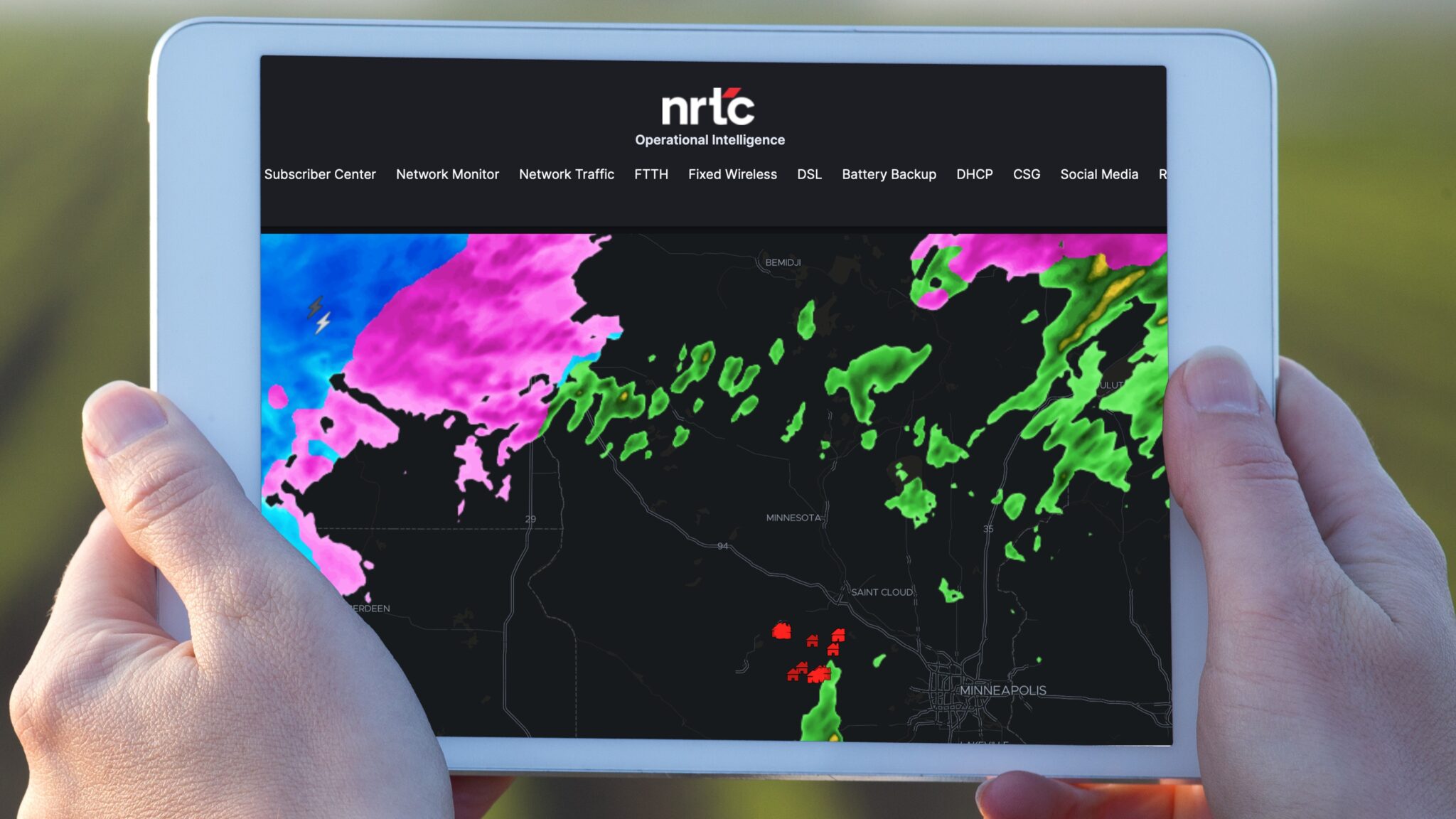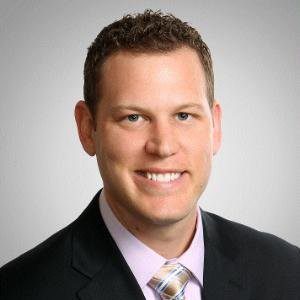Scalable and Sustainable Business Insights and the Evolution of OpIntel
Ben Anderson
|

The ability for a business to capture and act on insights has always been a driving factor that separates the successful businesses from the ones they leave behind. In today’s world, businesses need to analyze millions of points of data from a variety of sources. Identifying and acting on those insights is increasingly difficult and costly. As technology evolves and the needs of an organization evolve with it, so too will the demand for more sophisticated and robust analysis and data interconnections.
NRTC’s Operational Intelligence (OpIntel) and the Data Engineering team are at the heart of our data-driven initiatives. We are not just analyzing data but interconnecting the diverse systems that impact our members.
Our members’ networks are comprised of a lot of different data sources and a lot of changing data points. On average, we collect and maintain about 400 million data points on each of our members’ environments. At its core OpIntel is a business intelligence tool processing data from the network and other critical data sources.
NRTC introduced OpIntel in 2022 after working closely with pilot members over several months. The goal was to create a platform for automating and simplifying workflows and providing members’ with information that allows them to proactively identify issues before they affect subscribers.
OpIntel uses foundational analysis in combination with machine learning to identify and notify members of anomalous incidents buried within their 400 million data points.
NRTC is experimenting with ways more advanced data engineering and AI could shape OpIntel. A future version of OpIntel could simplify spotting needle-in-a-haystack events or finding correlations between seemingly unrelated data sets. Imagine asking OpIntel simple questions; having it do the analysis and providing you with answers or suggesting the next step.
One member company uses OpIntel to analyze events that might increase the likelihood of customer churn with the goal of predicting and preventing customer cancellations.
Another member uses OpIntel to optimize its network of 400 wireless towers; a process that used to take them about two weeks each year. The situation truly called for something much faster, which seemed to the member like an impossibility at the time. We took that challenge on and developed a workflow that reduces two weeks of work into a process that runs every 10 minutes, every day of the year.
When we talk to members about data, no one ever says I want less data. They always want more. They want to learn more about what’s happening. OpIntel is helping them with that and then enabling them to do something about it.

Ben Anderson is NRTC Director, Product Development
Scalable and Sustainable Business Insights and the Evolution of OpIntel
Ben Anderson
|

It was to be one hour of Wednesday morning oral arguments about the FCC’s Universal Service Fund (USF) program, considering whether Congress delegated too much of its authority when it created the program in the Telecommunications Act of 1996. Instead, U.S. Supreme Court justices spent more than two and a half hours peppering attorneys with questions about the nature of USF, whether the statute fails to set limits on the amount of funding it can collect and whether those fees are, in fact, taxes on the American public that Congress never debated.
“At its heart, this case is about taxation without representation. Every year, Americans pay billions for the Universal Service Fund. The rate has increased 10-fold, and the rate is now 20 times the size of the FCC’s entire annual budget,” said R. Trent McCotter, attorney representing Consumers’ Research.
Last summer, Consumers Research, a nonprofit advocacy group, won a decision in the U.S. Court of Appeals for the Fifth Circuit in New Orleans, finding that the USF contribution system was unconstitutional because Congress violated the non-delegation doctrine by ceding too much of its taxation authority to the FCC. The Commission then delegated USF management to a private third party, the Universal Service Administrative Co. (USAC).
During oral arguments, McCotter also claimed that Section 254 of the 1996 Telecom Act places no limit on the amount the Commission could collect in fees, which currently total about $9 billion annually. The act specifies that telecommunications carriers must pay a percentage of their interstate revenues into the fund. The contribution rate is currently more than a third of those revenues. Carriers then pass that expense on to consumers.
“Section 254 is no delegation running riots,” said the Trump Administration’s Acting Solicitor General Sarah Harris, who defended the current USF. She offered a lengthy list of provisions in the law that show Congress instructed the FCC how to collect fees, how to spend the revenue and retained for itself adequate oversight of the program.
“Congress enacted 254 against the backdrop of a half century history, where the FCC advanced universal service through rate subsidies. That delegation leaves key policy choices to Congress and is definite and precise enough for courts to tell if FCC followed Congress’s limits,” Harris said.
During questioning, Justice Neil Gorsuch said his belief that the universal service contribution system “is so clearly a tax.” But he was open to arguments that the system was constitutional regardless of whether it was a tax or a fee. Harris referred repeatedly to case law, especially the 1989 case Skinner v. Mid-America Pipeline Co., where the court has approved similar revenue-collecting systems established by federal agencies.


